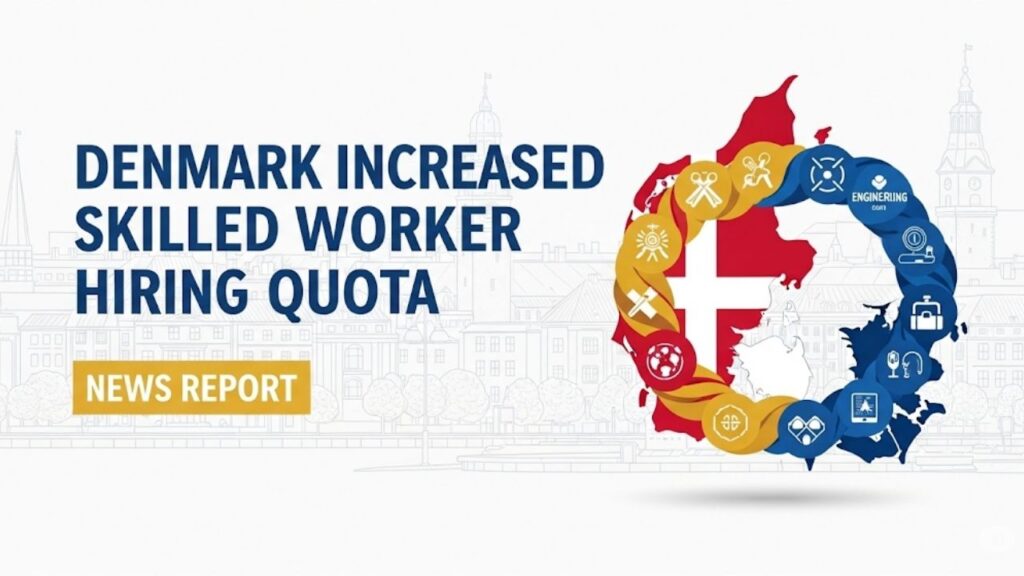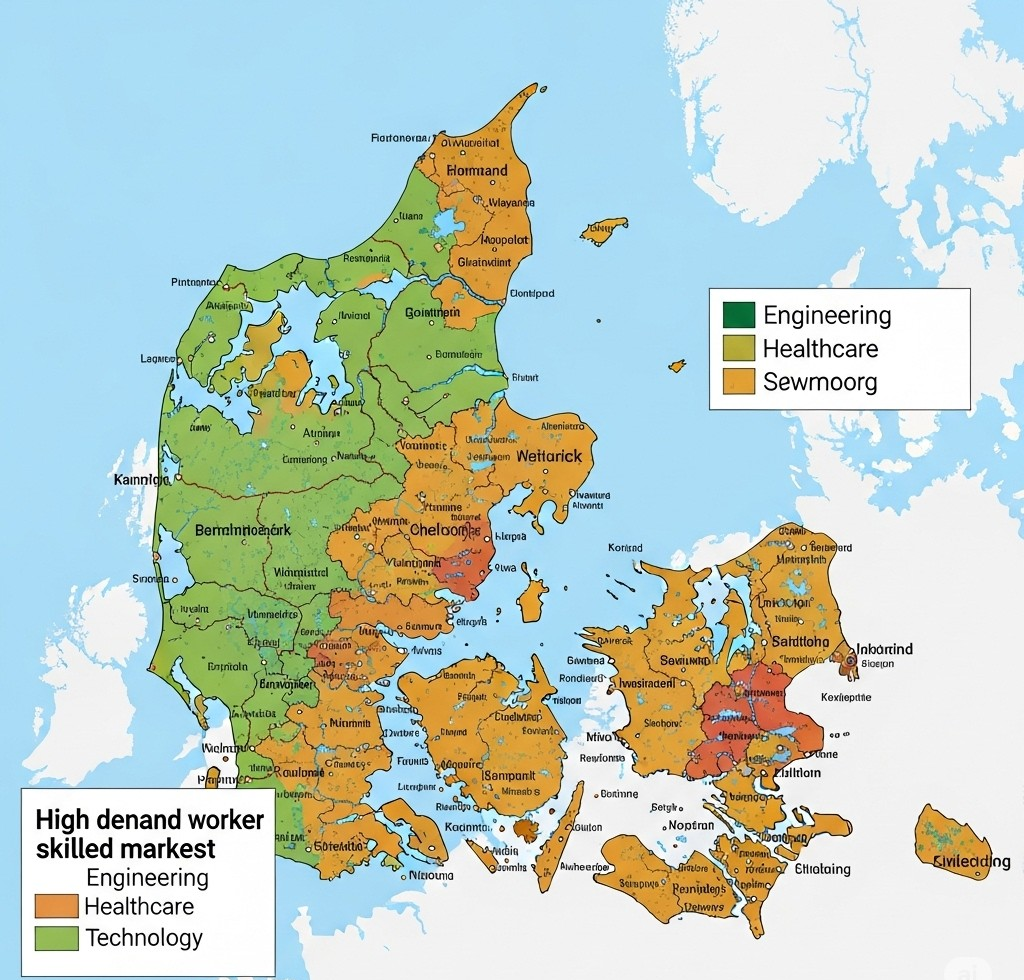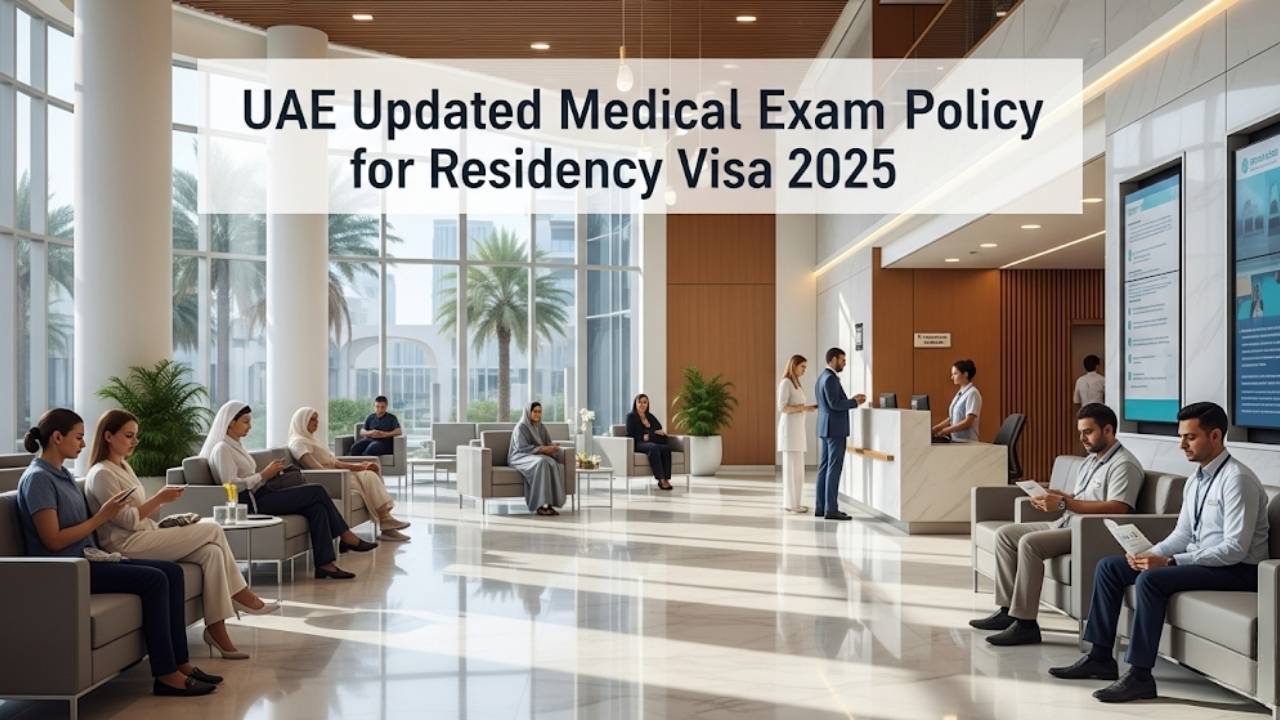Denmark has long been recognized for its exceptional quality of life, robust economy, and commitment to innovation. For skilled professionals worldwide, the prospect of contributing to this vibrant nation is increasingly appealing. The good news? The Danish government has once again demonstrated its dedication to attracting international talent by significantly increasing the skilled worker hiring quota in the new Positive List, effective July 1, 2025. This update presents a remarkable opportunity for individuals seeking to advance their careers and build a fulfilling life in a country that truly values expertise.

Denmark’s Commitment to Global Talent
Denmark, through the Danish Agency for International Recruitment and Integration (SIRI), regularly updates its Positive Lists—one for people with a higher education and another for skilled work. These lists identify professions experiencing a shortage of qualified professionals, thereby streamlining the process for international candidates to obtain residence and work permits. In my experience advising aspiring international professionals, one common hurdle is understanding which countries truly prioritize and facilitate skilled immigration. Denmark’s consistent updates to its Positive Lists clearly signal its proactive approach to filling critical labor gaps with global talent.
The July 2025 update is particularly encouraging. The Positive List for People with a Higher Education now includes 190 job titles, a notable increase, and the Positive List for Skilled Work features 65 job titles. This expansion reflects a growing demand across various sectors, offering diverse opportunities for individuals with the right qualifications and experience .
Unpacking the New Positive List: What’s Changed?
The latest iteration of Denmark’s Positive List demonstrates a strategic response to current and projected labor market needs. While the January 2025 update also saw significant changes, the July 2025 release further solidifies Denmark’s commitment.
Increased Opportunities for Higher Education Professionals
The substantial increase in job titles on the Positive List for People with a Higher Education is particularly noteworthy. This indicates a strong demand for individuals with university-level qualifications across a broader spectrum of industries. While specific detailed lists are published by SIRI, general trends point towards continued demand in:
- IT & Technology: Roles such as software developers, data analysts, cybersecurity specialists, and IT engineers remain highly sought after, reflecting Denmark’s burgeoning tech sector.
- Healthcare: With an aging population, Denmark continues to experience a critical need for medical professionals, including doctors (especially specialists), nurses, midwives, and medical laboratory technicians.
- Engineering: Mechanical, electrical, civil, and particularly green-tech engineers are in high demand as Denmark invests heavily in sustainable infrastructure and renewable energy.
- Education: Special education teachers and teachers in STEM fields are also consistently needed.
Skilled Work: Expanding Horizons for Trades and Technical Roles
While the increase in job titles for skilled work is comparatively smaller than for higher education, it still signifies crucial openings. This list targets vocational and technical professionals essential for various industries. Examples from previous lists that often reappear or see increased demand include:
- Blacksmiths
- Electricity distribution technicians
- Service technicians
- Electronics mechanics
- Production managers
- Various technicians

Why Denmark? The Irresistible Pull for Skilled Workers
Beyond the expanded job opportunities, Denmark offers a compelling package for international professionals. It’s not just about a job; it’s about a lifestyle.
Exceptional Work-Life Balance
Denmark consistently ranks high globally for its work-life balance. A standard workweek is typically 37 hours, and Danish culture strongly emphasizes personal time, family, and leisure. This commitment to well-being allows skilled workers to truly thrive, both professionally and personally.
High Standard of Living and Social Welfare
Denmark boasts a high standard of living, excellent public services, and a robust social welfare system. Residents benefit from universal healthcare, a high-quality (often free) education system, and comprehensive social security benefits. I’ve seen many successful applicants express how this holistic support system contributed significantly to their overall satisfaction and ease of integration.
Competitive Salaries and Strong Labor Protections
Skilled workers in Denmark can expect competitive salaries that align with Danish standards. Furthermore, the country has strong labor protections, ensuring fair working conditions and employee rights. The Danish government regularly updates income statistics, and for applications submitted from July 1, 2025, it’s crucial to ensure your job offer meets the stipulated salary levels [Source: Financial Express].
A Progressive and Inclusive Society
Denmark is known for its progressive values, innovation, and commitment to diversity. English is widely spoken, making it easier for international professionals to integrate into society and the workplace. There’s also a growing and supportive network of international communities across the country.
Navigating the Application Process: Your Step-by-Step Guide
Securing a residence and work permit under the Denmark Increased Skilled Worker Hiring Quota in the New Positive List issued in July 2025 is a streamlined process, but it requires careful preparation.
1. Confirm Your Eligibility
First and foremost, check the official Positive Lists on the Nyidanmark.dk website to ensure your profession is listed. Remember, there are two separate lists: one for higher education and one for skilled work. Your qualifications and experience must directly match the requirements for the specific job title.
2. Secure a Job Offer
A formal job offer from a Danish employer for a position on the Positive List is a mandatory requirement. This is the cornerstone of your application. Explore Danish job portals such as WorkInDenmark.dk, Jobindex.dk, and Ofir.dk. Many employers actively seek international talent for roles on the Positive List, making this a highly effective job search strategy.
3. Prepare Your Documentation
Once you have a job offer, gather all necessary documents. This typically includes:
- Valid passport
- Copies of all passport pages
- Completed application form (AR1: Application for Residence and Work Permit Based on Employment)
- Proof of paid application fee
- Employment contract/job offer (detailing salary and conditions)
- Diplomas, academic qualifications, and any relevant professional certifications
- Proof of health insurance
- Passport-size photos
- Proof of sufficient funds to support yourself (and accompanying family members)
4. Submit Your Application
Applications can be submitted online through the SIRI website, at a Danish diplomatic mission abroad, or in Denmark if you are already there on a different valid visa. After submitting your application, you will typically need to provide biometric data (fingerprints and photo) at a Danish diplomatic mission or a SIRI branch within a specified timeframe. The processing time for Positive List applications is generally efficient, often taking around one month [Source: VisaGuide.World].
5. Plan for Relocation and Integration
Upon approval, you’ll receive your residence and work permit. Now, the exciting part begins: planning your move to Denmark! Consider practical aspects such as accommodation, Danish language courses (though English is widely spoken, learning Danish can significantly enhance your integration), and understanding local customs. Denmark offers various resources to help newcomers settle in, making the transition as smooth as possible.

The Complete 2025 Guide to the USA Citizenship Process for Disability Exemptions
Denmark’s Golden Ticket: Increased Skilled Worker Hiring Quota in New Positive List (July 2025)
FAQs
Q1:What is the Denmark Positive List?
The Denmark Positive List is a list of professions experiencing a shortage of qualified professionals in Denmark. It is updated twice a year, on January 1st and July 1st, and allows foreign nationals who receive a job offer in one of these listed professions to apply for a residence and work permit.
Q2:How often is the Positive List updated?
The Positive List is updated twice a year, specifically on January 1st and July 1st. The latest update, effective July 1, 2025, reflects the current labor market needs in Denmark.
Q3:What are the main benefits of applying through the Positive List scheme?
The main benefits include a streamlined work and residence permit process, access to the Danish labor market, competitive salaries and benefits, the opportunity for permanent residency, and access to free Danish language courses. It also allows for family reunification.
Q4:Do I need a job offer to apply under the Positive List?
Yes, securing a formal job offer from a Danish employer for a position listed on the Positive List is a mandatory requirement before you can apply for a residence and work permit under this scheme.
Q5:What types of professions are typically found on the Positive List?
Professions commonly found on the Positive List span various sectors including IT and technology (e.g., software developers, data analysts), healthcare (e.g., doctors, nurses), engineering (e.g., mechanical, electrical, civil, green-tech engineers), and education (e.g., STEM teachers). The specific job titles vary with each update.










